What Motivated Me
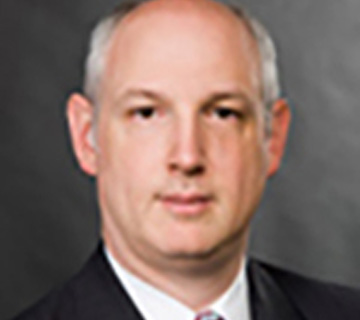 Steven Arndt, PhD, P.E.I guess I was destined to eventually become a licensed professional engineer, but I did not know it when I started my education and career. My undergraduate degree is in Engineering Physics and until my junior year I thought I was going to end up as a Physics Professor. In my junior year (spring of 1979) I took a course in Nuclear Engineering and then TMI-2 occurred. From that point on, I determined I was going to be nuclear engineer, and find a way to ensure that nuclear energy was used safely. I took my EIT exam when I was a first-year graduate student, and finally took my PE exam ten years later. But I knew from the start if I was going to be a leader in the engineering profession, I wanted to do it right and get my PE license. One of my mentors once told me, "You need to lead by example even when you're not the 'boss'." Since that time, I have done all I can to encourage and lead my colleagues to treat the engineering profession as a true calling and to make the world a better place, starting as a licensed professional. This has led me to where I am today, including serving as the Chairman of the Maryland Board for Professional Engineers.… more
Steven Arndt, PhD, P.E.I guess I was destined to eventually become a licensed professional engineer, but I did not know it when I started my education and career. My undergraduate degree is in Engineering Physics and until my junior year I thought I was going to end up as a Physics Professor. In my junior year (spring of 1979) I took a course in Nuclear Engineering and then TMI-2 occurred. From that point on, I determined I was going to be nuclear engineer, and find a way to ensure that nuclear energy was used safely. I took my EIT exam when I was a first-year graduate student, and finally took my PE exam ten years later. But I knew from the start if I was going to be a leader in the engineering profession, I wanted to do it right and get my PE license. One of my mentors once told me, "You need to lead by example even when you're not the 'boss'." Since that time, I have done all I can to encourage and lead my colleagues to treat the engineering profession as a true calling and to make the world a better place, starting as a licensed professional. This has led me to where I am today, including serving as the Chairman of the Maryland Board for Professional Engineers.… more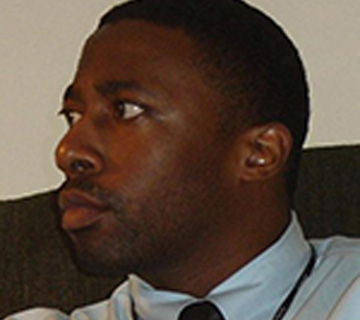 Aleem Boatright, P.E.Inspired by my father's great success in science as a Senior Research Chemist, I sought a career in the nuclear sciences and engineering field since grade school. As a result, I was blessed to work with and learn from some of the most talented professional nuclear engineers in our industry, even before graduating high school. Even more so than a graduate degree could, this experience taught me how broad and diverse our field is. The PE exam tests one's grasp of this breadth and diversity. Therefore, I would say that I was motivated to obtain my PE by a desire to prove to myself that I had acquired the breadth and depth of knowledge to make my Mentors proud, become a leader in my chosen field, and truly call myself a Nuclear Engineer.… more
Aleem Boatright, P.E.Inspired by my father's great success in science as a Senior Research Chemist, I sought a career in the nuclear sciences and engineering field since grade school. As a result, I was blessed to work with and learn from some of the most talented professional nuclear engineers in our industry, even before graduating high school. Even more so than a graduate degree could, this experience taught me how broad and diverse our field is. The PE exam tests one's grasp of this breadth and diversity. Therefore, I would say that I was motivated to obtain my PE by a desire to prove to myself that I had acquired the breadth and depth of knowledge to make my Mentors proud, become a leader in my chosen field, and truly call myself a Nuclear Engineer.… more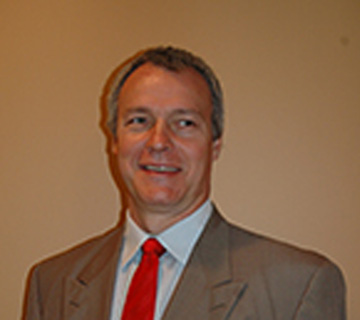 Randy Bunt, P.E.I was motivated to get my professional license by role models in college and the industry. I felt that having a license was the next step in being a professional. I feel having the license has provided me the interaction with a broader group of professionals and has at times set me apart from other engineers who have not obtained their license. I have been involved with the engineering societies (mechanical, nuclear and professional) for most of my 35+ year career and the networking has been invaluable. The professional side of the field is very important to ensure engineering is maintained as a distinct profession.… more
Randy Bunt, P.E.I was motivated to get my professional license by role models in college and the industry. I felt that having a license was the next step in being a professional. I feel having the license has provided me the interaction with a broader group of professionals and has at times set me apart from other engineers who have not obtained their license. I have been involved with the engineering societies (mechanical, nuclear and professional) for most of my 35+ year career and the networking has been invaluable. The professional side of the field is very important to ensure engineering is maintained as a distinct profession.… more Duriem Calderin, P.E., CHPThe professional examination in nuclear engineering sets the requirements and standards to understanding the roles of the engineering profession in society. Applying engineering principles to solve problems, but above all, to protect the workers, the public, and the environment. That’s a challenge! Obtaining the PE license is the goal for each engineer across the industry. Nuclear is no exception. Go forth and conquer; good luck!… more
Duriem Calderin, P.E., CHPThe professional examination in nuclear engineering sets the requirements and standards to understanding the roles of the engineering profession in society. Applying engineering principles to solve problems, but above all, to protect the workers, the public, and the environment. That’s a challenge! Obtaining the PE license is the goal for each engineer across the industry. Nuclear is no exception. Go forth and conquer; good luck!… more Mark Drucker, P.E.In college I studied both mechanical and nuclear engineering, with an emphasis on post-accident reactor core heat transfer behavior. I became licensed as a mechanical PE while working for an architect-engineering firm, but I always considered myself a nuclear engineer. I pursued nuclear PE licensure as a self-challenge - to prove to myself that I was a nuclear engineer. My obtaining of the nuclear PE has given me self-satisfaction and has proved invaluable in helping me along a career path through a nuclear utility and into nuclear engineering consulting.… more
Mark Drucker, P.E.In college I studied both mechanical and nuclear engineering, with an emphasis on post-accident reactor core heat transfer behavior. I became licensed as a mechanical PE while working for an architect-engineering firm, but I always considered myself a nuclear engineer. I pursued nuclear PE licensure as a self-challenge - to prove to myself that I was a nuclear engineer. My obtaining of the nuclear PE has given me self-satisfaction and has proved invaluable in helping me along a career path through a nuclear utility and into nuclear engineering consulting.… more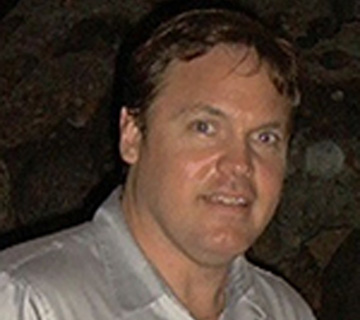 Paul Edelmann, PhD, P.E.As a nuclear engineer, I have always recognized the importance of working to high standards and ethical principles, in order to ensure the safety of the public. This (in addition to the prospect of putting my initials after my name) led me to become licensed, as it certified my adherence to those standards and principles. In turn, my career has been enhanced through the recognition by employers and clients of my competency and the reliability of my work as a registered professional engineer. Licensure has also afforded me opportunities to do independent consulting work as a nuclear engineer, which would not have been available to me without my license.… more
Paul Edelmann, PhD, P.E.As a nuclear engineer, I have always recognized the importance of working to high standards and ethical principles, in order to ensure the safety of the public. This (in addition to the prospect of putting my initials after my name) led me to become licensed, as it certified my adherence to those standards and principles. In turn, my career has been enhanced through the recognition by employers and clients of my competency and the reliability of my work as a registered professional engineer. Licensure has also afforded me opportunities to do independent consulting work as a nuclear engineer, which would not have been available to me without my license.… more Lynne Goodman, P.E.I decided to become a licensed PE to obtain another credential to give me an advantage in my future career. I was a licensed senior reactor operator at the time and thought that having both an SRO license and a PE license would give me unique credentials, so that I would be the most qualified candidate for any job I wanted. I knew I was planning on changing employers within the next year, and I was offered the position I most wanted. As a utility employee, I have not needed the PE. The PE license, though, earns me additional respect. As a nuclear worker, I consider safety in all my decision-making. Having the license makes the safety emphasis even more important. Recently, I took a continuing education ethics course because I had to for license maintenance. However, the course I chose, which dealt with why a dam built almost a 100 years ago failed when placed in service, was fascinating. The lessons learned still apply today and re-emphasized to me the importance of critical decision making as a professional engineer.… more
Lynne Goodman, P.E.I decided to become a licensed PE to obtain another credential to give me an advantage in my future career. I was a licensed senior reactor operator at the time and thought that having both an SRO license and a PE license would give me unique credentials, so that I would be the most qualified candidate for any job I wanted. I knew I was planning on changing employers within the next year, and I was offered the position I most wanted. As a utility employee, I have not needed the PE. The PE license, though, earns me additional respect. As a nuclear worker, I consider safety in all my decision-making. Having the license makes the safety emphasis even more important. Recently, I took a continuing education ethics course because I had to for license maintenance. However, the course I chose, which dealt with why a dam built almost a 100 years ago failed when placed in service, was fascinating. The lessons learned still apply today and re-emphasized to me the importance of critical decision making as a professional engineer.… more Robert Hayes, PhD, P.E.I obtained my license for multiple purposes. The primary reason was to prove to myself that I could do it and that my knowledge of the field was not only adequate but sufficient to meet nationally recognized standards. Almost equally important was the advancement in my career as I was working for a commercial operating contractor at a DOE site where a license was not required but certainly considered in promotions and retention during good times and bad. The final reason was that it would allow side work through consulting during retirement and or as a side job in rare occasions should the opportunity arise.… more
Robert Hayes, PhD, P.E.I obtained my license for multiple purposes. The primary reason was to prove to myself that I could do it and that my knowledge of the field was not only adequate but sufficient to meet nationally recognized standards. Almost equally important was the advancement in my career as I was working for a commercial operating contractor at a DOE site where a license was not required but certainly considered in promotions and retention during good times and bad. The final reason was that it would allow side work through consulting during retirement and or as a side job in rare occasions should the opportunity arise.… more Nathan Huffman, P.E.Obtaining a PE license was an eventuality to me, not a decision to make. It just seemed like a necessary piece of my career goals. This feeling was a combination of many things: knowledge, respect, prestige, career advancement, personal goals, etc. However, knowledge was the primary reason, and in a sense binds the rest of them together.… more
Nathan Huffman, P.E.Obtaining a PE license was an eventuality to me, not a decision to make. It just seemed like a necessary piece of my career goals. This feeling was a combination of many things: knowledge, respect, prestige, career advancement, personal goals, etc. However, knowledge was the primary reason, and in a sense binds the rest of them together.… more Brian Johnson, PhD, P.E.I decided to take the PE to show that I have put in the work to understand the many aspects of nuclear power. This knowledge is valuable not only as applied to my job as a probabilistic risk assessment (PRA) engineer, but also allows me to interface with other engineers that have different responsibilities. Having a PE license enhances my credibility when speaking to potential partners or presenting information to the public.… more
Brian Johnson, PhD, P.E.I decided to take the PE to show that I have put in the work to understand the many aspects of nuclear power. This knowledge is valuable not only as applied to my job as a probabilistic risk assessment (PRA) engineer, but also allows me to interface with other engineers that have different responsibilities. Having a PE license enhances my credibility when speaking to potential partners or presenting information to the public.… more Andy Klein, PhD, P.E.I chose to take the PE exam and become a licensed engineer because I wanted, in part, to demonstrate the importance of being a professional engineer to the students that I teach. I also believe that licensure indicates a certain level of competence as an engineer and identifies one as dedicated to solving problems with integrity, creativity, and ethically. By becoming a professional engineer I was also following in my father's footsteps, as he was a licensed engineer his entire career.… more
Andy Klein, PhD, P.E.I chose to take the PE exam and become a licensed engineer because I wanted, in part, to demonstrate the importance of being a professional engineer to the students that I teach. I also believe that licensure indicates a certain level of competence as an engineer and identifies one as dedicated to solving problems with integrity, creativity, and ethically. By becoming a professional engineer I was also following in my father's footsteps, as he was a licensed engineer his entire career.… more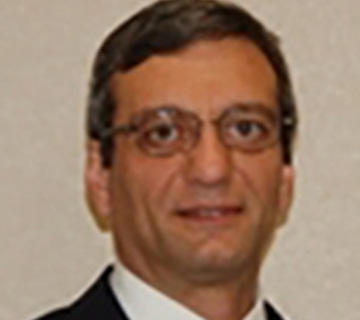 Necdet Kurul, PhD, P.E.There is a wide spectrum in engineering curricula, requirements for awarding an engineering degree, and the experience at work. I wanted to have an objective and universal evidence that I met the minimum competency required of an engineer. This reason alone was not sufficient to apply for a PE license. The scale was tipped for getting a license when my previous employer made the PE license a .desirable attribute. for career advancement. I ended up leaving my job for a better one elsewhere when an opportunity came up, but I continued to maintain my PE license. Having a PE may have played a role in getting that better job, but I could not be certain of it.… more
Necdet Kurul, PhD, P.E.There is a wide spectrum in engineering curricula, requirements for awarding an engineering degree, and the experience at work. I wanted to have an objective and universal evidence that I met the minimum competency required of an engineer. This reason alone was not sufficient to apply for a PE license. The scale was tipped for getting a license when my previous employer made the PE license a .desirable attribute. for career advancement. I ended up leaving my job for a better one elsewhere when an opportunity came up, but I continued to maintain my PE license. Having a PE may have played a role in getting that better job, but I could not be certain of it.… more Stanley Levinson, PhD, P.E.When I took the PE exam (nuclear), I was working in probabilistic risk assessment (PRA), and realized that I probably would never need to apply a PE seal to any of my work. However, no one knows the path that their career will take, and having a PE will permit many different paths. I still work in PRA and never needed to use a PE seal. However, I firmly believe that all engineers should be PEs, to underscore the professionalism and responsibility (to public health and safety), just as many other professionals need to be licensed to practice. Finally, with a PE, my ethical responsibilities to myself, my company, and society are clarified, helping me make the right decision every time.… more
Stanley Levinson, PhD, P.E.When I took the PE exam (nuclear), I was working in probabilistic risk assessment (PRA), and realized that I probably would never need to apply a PE seal to any of my work. However, no one knows the path that their career will take, and having a PE will permit many different paths. I still work in PRA and never needed to use a PE seal. However, I firmly believe that all engineers should be PEs, to underscore the professionalism and responsibility (to public health and safety), just as many other professionals need to be licensed to practice. Finally, with a PE, my ethical responsibilities to myself, my company, and society are clarified, helping me make the right decision every time.… more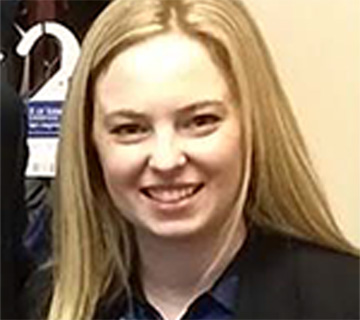 Elizabeth Mattson, P.E.I obtained my PE license as it was a simple way to professionally differentiate myself. It helped that my company emphasizes the importance of obtaining a PE license and provides ample resources to do so as well. Finally, having my license also encourages me to continuously develop myself through PDH requirements.… more
Elizabeth Mattson, P.E.I obtained my PE license as it was a simple way to professionally differentiate myself. It helped that my company emphasizes the importance of obtaining a PE license and provides ample resources to do so as well. Finally, having my license also encourages me to continuously develop myself through PDH requirements.… more Arielle Miller, P.E.I had a mentor early in my career as a nuclear engineer who would say "Do you want a job or a career?" I knew I wanted a career and that meant investing in myself and that career. A professional engineering license in the nuclear industry is one of the ways that I have committed to my career. It has helped open doors for me professionally and I believe it is because it not only distinguishes me from those without a PE but it also, and perhaps most importantly, shows people that I am committed to my vocation.… more
Arielle Miller, P.E.I had a mentor early in my career as a nuclear engineer who would say "Do you want a job or a career?" I knew I wanted a career and that meant investing in myself and that career. A professional engineering license in the nuclear industry is one of the ways that I have committed to my career. It has helped open doors for me professionally and I believe it is because it not only distinguishes me from those without a PE but it also, and perhaps most importantly, shows people that I am committed to my vocation.… more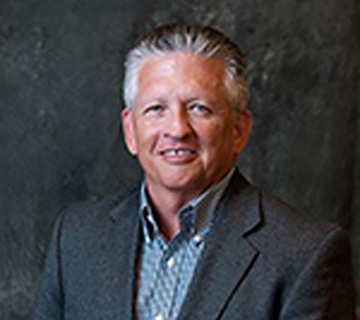 Mark Peres, P.E.I'm very curious and love to learn. As a kid, I would take the coffee maker and the grandfather clock apart and fix them, figuring out how they worked along the way. Engineering seemed a natural career path. I started my career at a sodium-cooled fast neutron test reactor in 1981 and was excited to learn all about how that plant worked. I was surprised at how much I learned on the job and realized that an undergraduate degree is really just a good start. In 1984 I was promoted to be the Control Room Supervisor and started managing people more than technical problems. I missed the technical learning, so I went back to night school to get a Master's degree in mechanical engineering. I found that the second time around, I understood the subjects so much better, and was more interested in really understanding them more deeply – getting surprisingly better grades than when I was an undergrad. I was also interested in advancement at work, and I thought that getting a PE would do three things for me: 1) I would gain a better understanding of engineering in general by re-studying a wide range of subjects in preparation for my test, 2) I would show that I was interested in improving myself, and 3) I would stand out more than others who didn't have a PE, increasing my chances for promotion at work. I did get all three of these things and I'm happy that I did it. I recommend getting a PE as a career development step and a self-improvement opportunity for any engineer.… more
Mark Peres, P.E.I'm very curious and love to learn. As a kid, I would take the coffee maker and the grandfather clock apart and fix them, figuring out how they worked along the way. Engineering seemed a natural career path. I started my career at a sodium-cooled fast neutron test reactor in 1981 and was excited to learn all about how that plant worked. I was surprised at how much I learned on the job and realized that an undergraduate degree is really just a good start. In 1984 I was promoted to be the Control Room Supervisor and started managing people more than technical problems. I missed the technical learning, so I went back to night school to get a Master's degree in mechanical engineering. I found that the second time around, I understood the subjects so much better, and was more interested in really understanding them more deeply – getting surprisingly better grades than when I was an undergrad. I was also interested in advancement at work, and I thought that getting a PE would do three things for me: 1) I would gain a better understanding of engineering in general by re-studying a wide range of subjects in preparation for my test, 2) I would show that I was interested in improving myself, and 3) I would stand out more than others who didn't have a PE, increasing my chances for promotion at work. I did get all three of these things and I'm happy that I did it. I recommend getting a PE as a career development step and a self-improvement opportunity for any engineer.… more Tom Rosener, PhD, P.E.Several years ago, I completed a 22-year career in the U.S. Army as a Nuclear Research Officer. In order to transition from the military to a civilian employer, I felt that gaining the Professional Engineering Licensure would help substantiate a level of competence in nuclear engineering beyond what most people might expect from a retiring Army Officer. As a defense contractor supporting an agency within the Department of Defense, the PE is not a job requirement. It has, however, served me well in career advancement and technical credibility with my government customer. As a manager, having the PE helps me encourage my employees with setting the PE as a mid-term, attainable goal.… more
Tom Rosener, PhD, P.E.Several years ago, I completed a 22-year career in the U.S. Army as a Nuclear Research Officer. In order to transition from the military to a civilian employer, I felt that gaining the Professional Engineering Licensure would help substantiate a level of competence in nuclear engineering beyond what most people might expect from a retiring Army Officer. As a defense contractor supporting an agency within the Department of Defense, the PE is not a job requirement. It has, however, served me well in career advancement and technical credibility with my government customer. As a manager, having the PE helps me encourage my employees with setting the PE as a mid-term, attainable goal.… more Alexandra Siwy, P.E.Considering the numerous benefits of having a P.E. license, I could not think of a good reason NOT to pursue licensure. I knew being licensed would add to my technical credibility, help me to stand out from my peers, and increase my value as an employee. I also wanted to prove to myself that I had attained a level of knowledge of nuclear engineering sufficient to pass the PE exam. But perhaps most importantly, I wanted to prove my commitment to a high standard of engineering and to maintaining the health and safety of the public.… more
Alexandra Siwy, P.E.Considering the numerous benefits of having a P.E. license, I could not think of a good reason NOT to pursue licensure. I knew being licensed would add to my technical credibility, help me to stand out from my peers, and increase my value as an employee. I also wanted to prove to myself that I had attained a level of knowledge of nuclear engineering sufficient to pass the PE exam. But perhaps most importantly, I wanted to prove my commitment to a high standard of engineering and to maintaining the health and safety of the public.… more Rebecca Steinman, PhD, P.E.I initially took the PE exam to prove that I could pass what was considered a difficult exam. Today, I take pride in having "PE" after my name, especially because as a nuclear engineer, I do not have to be licensed for many aspects of my job, but I choose to remain licensed as a sign of my commitment to the protection of the health and safety of the public.… more
Rebecca Steinman, PhD, P.E.I initially took the PE exam to prove that I could pass what was considered a difficult exam. Today, I take pride in having "PE" after my name, especially because as a nuclear engineer, I do not have to be licensed for many aspects of my job, but I choose to remain licensed as a sign of my commitment to the protection of the health and safety of the public.… more Tracy Stover, PhD, P.E.Obtaining the PE was a professional goal of mine ever since I took the FE as an undergraduate. The PE embodies proof that the licensee has achieved a particular level of expertise as recognized by national standards. It symbolizes a dedication to engineering ethics and public safety. I have worked in a number of facets of the nuclear industry and in all I have found nuclear PE licensees to be a small but essential group which I am now proudly part of. My employers have certainly recognized and appreciated my PE.… more
Tracy Stover, PhD, P.E.Obtaining the PE was a professional goal of mine ever since I took the FE as an undergraduate. The PE embodies proof that the licensee has achieved a particular level of expertise as recognized by national standards. It symbolizes a dedication to engineering ethics and public safety. I have worked in a number of facets of the nuclear industry and in all I have found nuclear PE licensees to be a small but essential group which I am now proudly part of. My employers have certainly recognized and appreciated my PE.… more Joshua Vajda, P.E., CHPLicensure is the mark of a professional. It's a standard recognized by employers and their clients, by governments and by the public as an assurance of dedication, skill, and quality. Employers are impressed with engineers who have their PE license. Licensure not only enhances your stature, it shows commitment to the profession and demonstrates heightened leadership and management skills.… more
Joshua Vajda, P.E., CHPLicensure is the mark of a professional. It's a standard recognized by employers and their clients, by governments and by the public as an assurance of dedication, skill, and quality. Employers are impressed with engineers who have their PE license. Licensure not only enhances your stature, it shows commitment to the profession and demonstrates heightened leadership and management skills.… moreLast modified July 27, 2018, 3:31pm CDT

